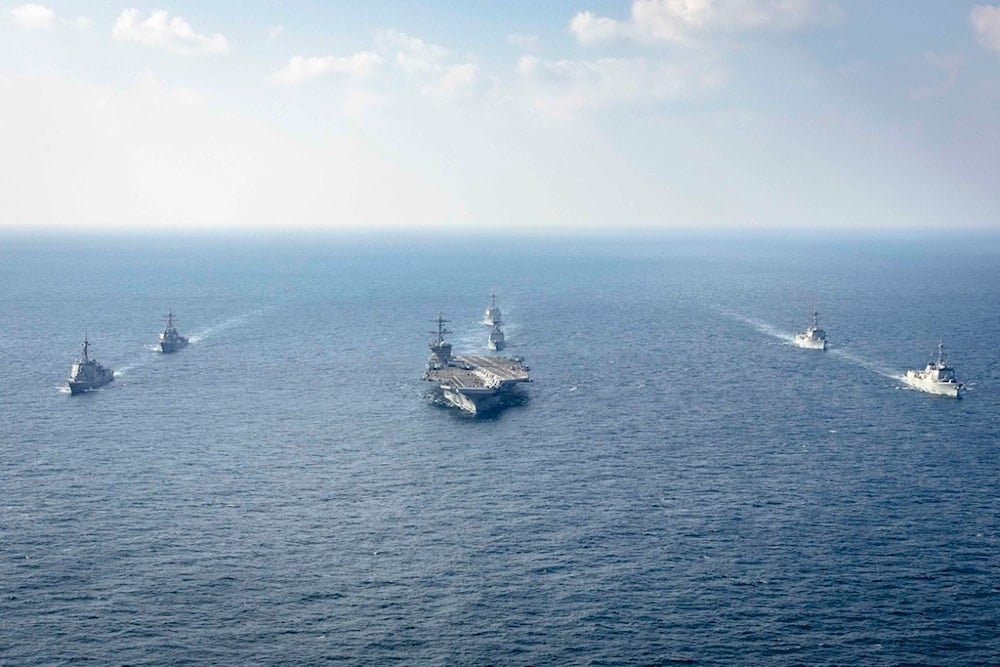Japan, US plan missile deployment for Taiwan contingency initiative
Under the proposed plan, missile units will be stationed on Japan's Nansei Islands, specifically in the southwestern prefectures of Kagoshima and Okinawa, as well as in the Philippines.
-

Warships of South Korea, the United States, and Japan take part in the trilateral Freedom Edge exercise in international waters off South Korea's southern island of Jeju, Wednesday, Nov. 13, 2024. (South Korea Defense Ministry via AP)
Japan's Kyodo News on Sunday reported that Japan and the US are set to finalize a joint military plan next month to address a potential Taiwan contingency initiative.
The plan involves deploying US missile units to strategic locations in Japan and the Philippines, a move likely to further escalate tensions with Beijing.
Under the proposed plan, missile units will be stationed on Japan's Nansei Islands, specifically in the southwestern prefectures of Kagoshima and Okinawa, as well as in the Philippines.
The US Marine Corps' Marine Littoral Regiment, equipped with High Mobility Artillery Rocket Systems (HIMARS) and other advanced weaponry, is set to play a key role in these strategic locations.
A specialized US unit focusing on space, cyberspace, and electromagnetic operations is also expected to be stationed in the Philippines for the purposes of enhancing joint capabilities in modern warfare.
Flexing muscles
This cooperation comes amid heightened tensions in the South China Sea, where the US has been increasing its military presence, aiming to counterbalance China's influence in the region.
The Nansei Islands, located near Taiwan, are considered a critical geographic buffer, making their defense a strategic priority.
As part of the broader "Pivot to Asia" (or "Rebalance to Asia"), the US began shifting diplomatic, military, and economic resources toward the Asia-Pacific region.
Over the years, military cooperation between the United States and its allies in the region has intensified, with increased joint exercises, arms sales, and the deployment of advanced military assets aimed at provoking China.
Read more: Japan, Australia, US boost Pacific militarization with joint drills
China has viewed these joint military drills as provocative actions aimed at containing its influence in the region. Beijing has recently intensified its military activities in the South China Sea with the aim of defending its territorial claims.
Notably, China has expanded its coast guard fleet, deploying the world's longest patrol ships, such as the Haijing 5901 and Haijing 2901, to enforce its territorial claims in disputed waters.
The Wall Street Journal reported on November 4 that these vessels have been involved in confrontational actions, including ramming rival ships.

 2 Min Read
2 Min Read








